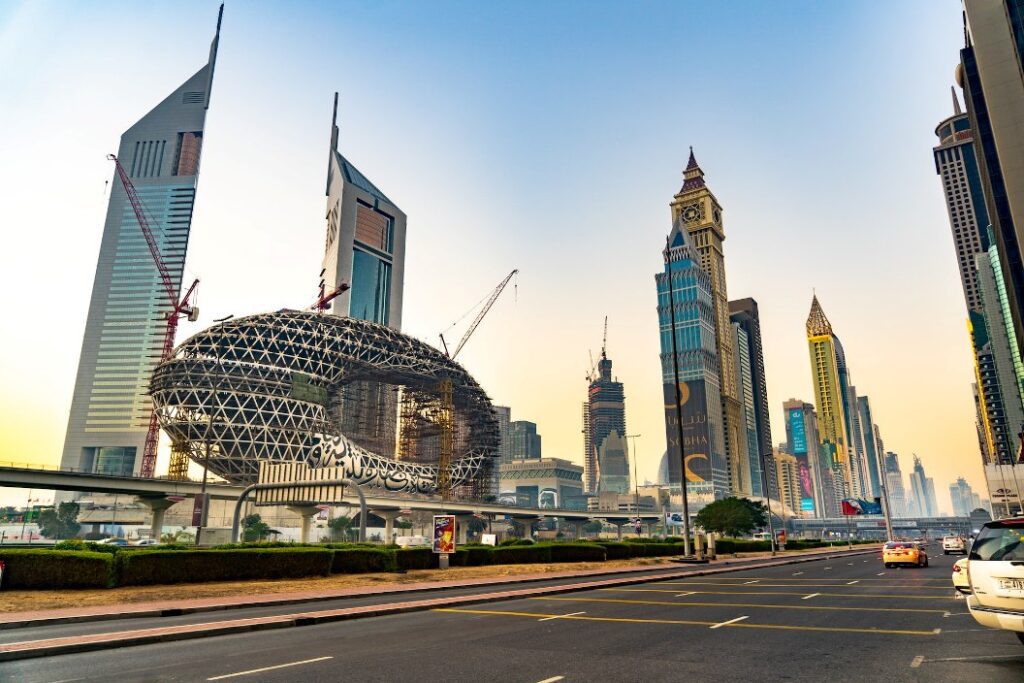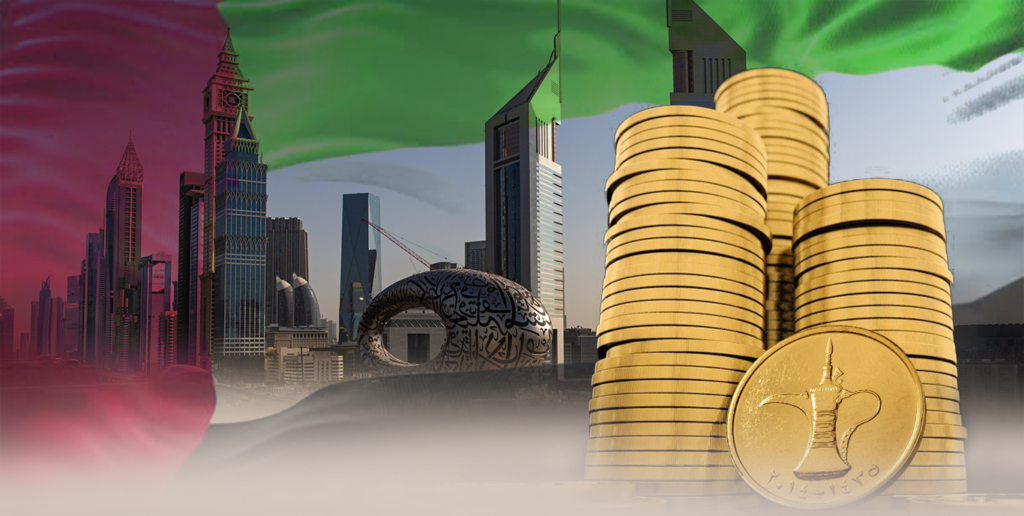The Arabian Gulf, also known as the Persian Gulf in some contexts, plays an essential role in shaping the United Arab Emirates (UAE). It is more than just a body of water – it is a critical factor in the UAE’s economy, trade, and security. Stretching from the Strait of Hormuz in the east to the Gulf of Oman and connecting the UAE with key global trade routes, the Arabian Gulf holds immense significance for the UAE’s future.
A Crucial Trade Route
One of the key reasons the Arabian Gulf is so vital to the UAE is its role as an important trade route. The UAE’s position on the shores of the Gulf allows the country to connect with major international markets across the Middle East, Asia, and even Europe. The Arabian Gulf forms part of the global shipping route for oil, gas, and other vital goods.
The Port of Dubai and other important ports, like the Port of Sharjah and the Port of Fujairah, are all located along the Arabian Gulf. These ports are not just vital for the UAE’s economy but for the global economy too. They are among the busiest in the world, handling millions of tons of cargo each year. This is especially important because a large portion of the world’s oil passes through the Arabian Gulf, making it one of the most significant shipping routes globally.

The UAE has leveraged this geographical advantage to build a thriving trade and logistics sector. In Dubai, the Jebel Ali Port is considered one of the largest and busiest ports in the world. This port serves as a hub for goods moving to and from the Middle East, Asia, and beyond. In fact, Dubai’s rapid economic growth is partly a result of the UAE’s strategic location along the Arabian Gulf.
Oil and Gas – The Heart of the UAE’s Economy
The Arabian Gulf’s role in the UAE’s economy is largely driven by its significant oil and gas reserves. The region around the Gulf is rich in energy resources, and the UAE has capitalized on these resources for decades. The country is one of the world’s leading producers of oil and natural gas, and a large portion of its oil exports pass through the Arabian Gulf.


The discovery of oil in the UAE in the 20th century transformed the country into one of the wealthiest nations in the world. Oil revenues have enabled the UAE to fund major infrastructure projects, including the construction of modern cities, state-of-the-art airports, and luxury hotels. Today, oil continues to be a significant part of the UAE’s economy, although the country is also working on diversifying its economy.
The Arabian Gulf remains a key transportation route for the UAE’s oil exports. Oil tankers regularly travel through the Gulf to reach destinations in Asia, Europe, and the Americas. The region is crucial not only for the UAE’s energy exports but also for global energy markets, as many countries rely on oil shipments from the Gulf.
Geopolitical Significance and Security
Beyond its economic role, the Arabian Gulf is also of great geopolitical importance to the UAE. The waters of the Gulf are a critical link between the UAE and neighboring countries, including Iran, Saudi Arabia, and Qatar. The Gulf is also home to vital chokepoints, such as the Strait of Hormuz, which connects the Gulf to the Arabian Sea. This narrow waterway is one of the most strategic passages in the world, with a significant portion of the world’s oil exports passing through it.
Given the geopolitical importance of the Arabian Gulf, the UAE places a strong emphasis on maintaining regional stability and security. The UAE’s military forces, along with those of its allies, regularly patrol the Gulf to ensure that shipping lanes remain open and safe. The UAE is also a key member of the Gulf Cooperation Council (GCC), a political and economic alliance aimed at fostering cooperation between Gulf states and strengthening regional security.
The security of the Arabian Gulf is a shared concern for many countries in the region. Tensions in the Gulf can have serious consequences, not only for the countries involved but for global trade and oil prices. For this reason, the UAE works closely with international partners, including the United States and European nations, to address security challenges and prevent conflicts from disrupting the flow of goods through the Gulf.
Environmental Impact and Sustainability Efforts
While the Arabian Gulf is a key asset for the UAE, it also faces environmental challenges. The region’s waters are home to diverse marine life, including fish, coral reefs, and migratory bird species. However, the Gulf is also vulnerable to pollution, overfishing, and oil spills, which can threaten its delicate ecosystem.
In recent years, the UAE has taken several steps to address these environmental challenges. The government has implemented stricter regulations on pollution and has invested in cleaner technologies to reduce emissions from oil and gas industries. In addition, the UAE has established marine protected areas in the Gulf to conserve biodiversity and ensure that future generations can continue to enjoy the region’s natural resources.
The UAE is also working to develop sustainable energy sources, such as solar and nuclear power, to reduce its reliance on fossil fuels. These efforts are part of the country’s broader strategy to diversify its economy and promote environmental sustainability. The UAE has set ambitious goals to cut carbon emissions and invest in green technologies, recognizing the importance of protecting the Gulf’s environment for both economic and ecological reasons.
Tourism and Economic Diversification
In addition to trade, oil, and security, the Arabian Gulf also plays a role in the UAE’s growing tourism industry. The coastlines of the Arabian Gulf, with their stunning beaches and clear blue waters, attract millions of visitors each year. The UAE has invested heavily in developing luxury resorts, hotels, and tourist attractions along its Gulf coast, particularly in Dubai and Abu Dhabi.
The tourism industry is an essential part of the UAE’s plan to diversify its economy away from oil dependence. By focusing on attracting international visitors, the UAE hopes to create new revenue streams and job opportunities for its citizens. The growth of tourism along the Arabian Gulf has not only boosted the economy but also helped to improve the UAE’s global image as a modern, dynamic destination.
Looking Ahead: The Future of the Arabian Gulf
As the UAE looks to the future, the Arabian Gulf will continue to play a central role in the country’s development. The UAE government is committed to further enhancing its position as a global trade hub and a leader in energy exports. At the same time, the country is working to reduce its reliance on oil by investing in industries like tourism, technology, and renewable energy.
The Arabian Gulf will also remain a vital strategic asset for the UAE in terms of both security and geopolitics. The country will continue to work with regional and international partners to ensure the stability and safety of the Gulf, which is critical not only for the UAE but for global commerce and energy markets.
In conclusion, the Arabian Gulf is far more than just a body of water to the UAE. It is a vital lifeline for the country’s economy, security, and future growth. From trade and energy to environmental protection and tourism, the Gulf continues to shape the UAE’s position in the world. As the UAE looks to the future, the Arabian Gulf will remain a key part of its strategy for continued success and global influence.
Also read: The Strait of Hormuz: A Key Global Chokepoint for Oil and Trade












